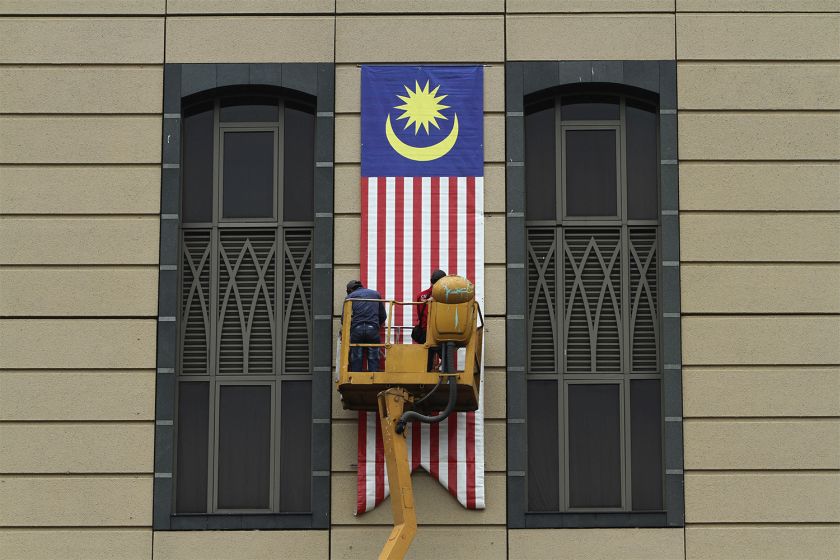KUALA LUMPUR, Aug 8 ― Malaysia, which hosts the Asia-Pacific Economic Cooperation (Apec) leaders' summit in 2020, must prioritise deliverables to boost both national and regional growth and create economic opportunities for its 21-member economies in what appears to be a daunting task amid immense challenges currently affecting the region.
From trade wars to low crude oil prices and dwindling investor sentiment in the region, Apec governments need to allay concerns among its 31 million populace that they “are on the same page” through concerted efforts to achieve these goals by embracing modern technology in a comprehensive manner, as well as using modern communication tools, Apec director, communications and public affairs, Michael Chapnick, told Bernama.
While acknowledging the challenges confronting Apec economies, he also expressed confidence in Prime Minister Tun Dr Mahathir Mohamad whose experience in the regional forum and its chairman for the second time around, after the first time in 1998, would be able to lead and guide regional leaders to formulate national and regional initiatives focusing on economic deliverables.
Malaysia takes over the chairmanship of Apec with the official handling set to take place in mid-November, when Chile completes its chairmanship.
Chapnick said it is therefore crucial for the government to convey messages to the people to ensure both the decision makers, namely the governments and the regional populace have a common understanding of what needs to be done to realise these deliverables.
“On this note, Tun Dr Mahathir Mohamad is the best advocate for Apec 2020, and given his experience in the regional conference, can best articulate Malaysia’s needs, what the country wants to achieve as Apec host next year, while commanding attention from the media.
“It’s important for the media to work closely with the Prime Minister's Office to stay informed about Malaysia’s calendar of activities and its priorities for Apec 2020,” he said.
Given that Dr Mahathir is a strong and respected voice around the world, Asean should tap on it, added Chapnick.
Apec 2020, according to him, would be a nostalgic event for the 94-year old veteran as he was the fourth prime minister when Malaysia first hosted Apec 20 years ago.
Alluding to the prime minister’s immense experience and knowledge of the inter-governmental forum’s initiatives, Apec Social Media Manager, Masyitha Baziad, said Dr Mahathir “has a deep personal history with Apec and the regional community, which is why he will be able to guide the people.
“It would be interesting to see how he gauged the changes and challenges facing Apec since he first played host and now in 2020.
“In 1998, we didn’t have the same mechanism that we do now to communicate. Dr Mahathir also embraced modern technology, which means Apec economies should also embrace modern communication tools,” she said.
Masyitha added that it is an opportunity for Malaysia to have Dr Mahathir as the main spokesperson as he will be the chair.
Malaysia is experienced in hosting a number of big events including the Commonwealth Games and Asean Summit and it is building its capacity to receive about 15,000 delegates during Apec 2020.
Chapnick noted that from his observation, the Malaysian team is engaging at all levels from policy matters to communication and logistics to prepare the country to host Apec 2020.
Previously, Dr Mahathir was reported as saying that Malaysia needed to show firm commitment to produce substantive deliverables when assuming the chairmanship of Apec as well as ensure smooth running of the series of meetings in 2020.
“Malaysia needs to start charting a new phase for Apec,” he had said.
Apec is a regional economic forum established in 1989 to leverage the growing interdependence of the Asia-Pacific region, aiming to create greater prosperity via promoting balanced, inclusive, sustainable, innovative and secure growth, while accelerating regional economic integration.
Besides providing abundant opportunities for small and medium-sized enterprises, it would create a platform for tenders, jobs, network sessions and other possibilities waiting for Malaysians to showcase their skills, expertise, technology, hospitality, food and much more to 20 other economies, which represent about 80 per cent of Malaysia’s trade and 74 per cent in foreign direct investment. ― Bernama



















